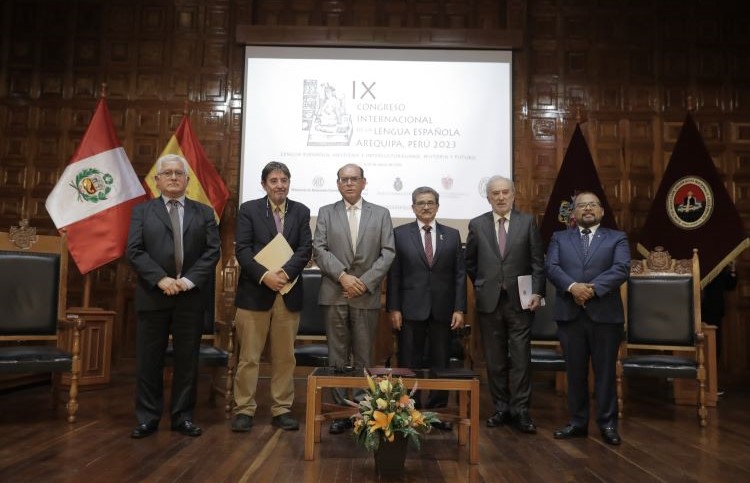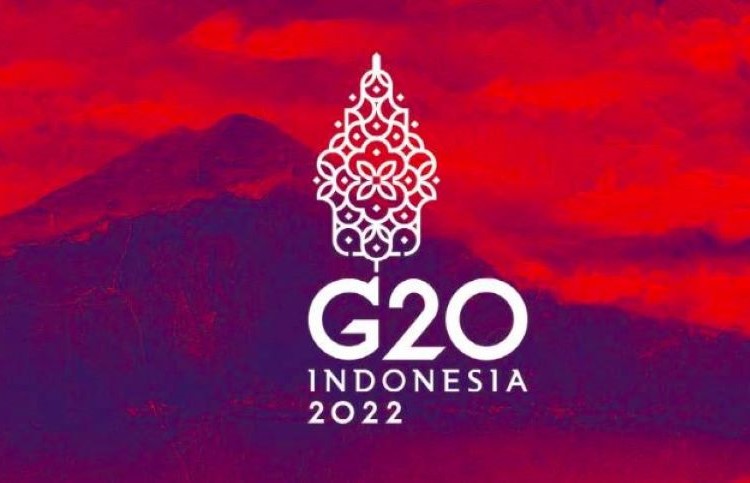The Diplomat
The IX International Congress of the Spanish Language (CILE) will be held in Arequipa (Peru) from March 27 to 30, 2023 under the theme Spanish language, miscegenation and interculturality. History and future and with the participation of renowned writers such as Sergio Ramirez, Hector Abad Faciolince, Gioconda Belli, Santiago Roncagliolo, Jorge Volpi or Martin Caparros.
This was announced last Friday during the official presentation of the Congress by the Minister of Foreign Affairs of Peru, César Landa Arroyo; the director of the Instituto Cervantes, Luis García Montero; the director of the Royal Spanish Academy and president of the Association of Language Academies (ASALE), Santiago Muñoz Machado; and the rector of the National University of San Agustín (Arequipa), Hugo Rojas Flores, who were joined by the mayor of Arequipa, Omar Candia.
The event took place in the auditorium of the Universidad de San Agustín, which has just celebrated its 194th anniversary and which, during the Congress, will host the debates and presentations of the more than two hundred specialists (linguists, historians, thinkers, editors, creators, language scholars, professors, journalists and scientists) invited.
The Congress, which will take place both at the Universidad Nacional de San Agustín and at the Teatro Municipal, will be organized around six thematic axes: Spanish and the native languages in Mesoamerica, the Caribbean and the Andean space; languages and the circulation of books during the viceroyalties or the forging of national literatures; the Spanish language as a factor of globalization; mestizaje, bilingualism and multilingualism; language within artificial intelligence; and the relationship between mestizaje and its graphic representation, pan-Hispanic gastronomy or intercultural journalism.
The solemn opening session will be followed by the introductory plenary session, El español, lengua común. Mestizaje e interculturalidad en la comunidad hispanohablante, which will include a first round table discussion. Each of the six plenary sessions that will take place over the four days of work will begin with a general presentation, followed by a colloquium or round table discussion. The different aspects of each issue will then be addressed in simultaneous panels.
In addition to the six plenary sessions, three other special plenary sessions have been organized in which the congress organizers – the Instituto Cervantes, the RAE and ASALE, and the host country – will present their respective activities and projects. There will also be various complementary activities within an extensive cultural program that includes exhibitions, tributes, concerts, performances and book presentations. All of them with the aim of contributing to the participation and involvement of the Arequipa population. The congress will close on March 30 with a solemn closing session in which the conclusions of these days of debate and reflection will be summarized, and the place that will host the next conclave on the Spanish language will be formally announced.
The Language Congress is organized by the Instituto Cervantes (responsible for the general secretariat), the Royal Spanish Academy (RAE), the Association of Spanish Language Academies (ASALE) and the host country, in this case Peru. CILE is usually inaugurated by the King and Queen of Spain and the President of the Republic of the country hosting the congress. King Felipe and the President of the Republic of Peru, Pedro Castillo, form the Honorary Presidency in this ninth edition of the conclave.
Quechua and Aymara
During the presentation, García Montero made a defense of miscegenation and cultural exchange, the main axes of the congress, because “meditating on identity is decisive for those of us who believe in dignity and rights”, and ended by recalling the support of the Royal Household and the Spanish Ministry of Foreign Affairs for this great Spanish event. For his part, César Landa reiterated the commitment of the Government of Peru to the celebration of the Congress and recalled the coexistence of Spanish with more than 40 native languages of Peru, such as Quechua and Aymara. In this sense, the director of the Royal Spanish Academy and ASALE recalled the numerous words borrowed from Quechua, Aymara, Shipibo or Ashaninka in the Dictionary of the Spanish Language, such as avocado, cacao, canoa, guava, alpaca, cassava, or cancha.
The previous congresses were held in Zacatecas (Mexico, 1997), Valladolid (Spain, 2001), Rosario (Argentina, 2004), Cartagena de Indias (Colombia, 2007), Valparaiso (Chile, 2010, held online due to the previous earthquake), Panama City (2013), San Juan de Puerto Rico (2016) and Cordoba (Argentina, 2019).







